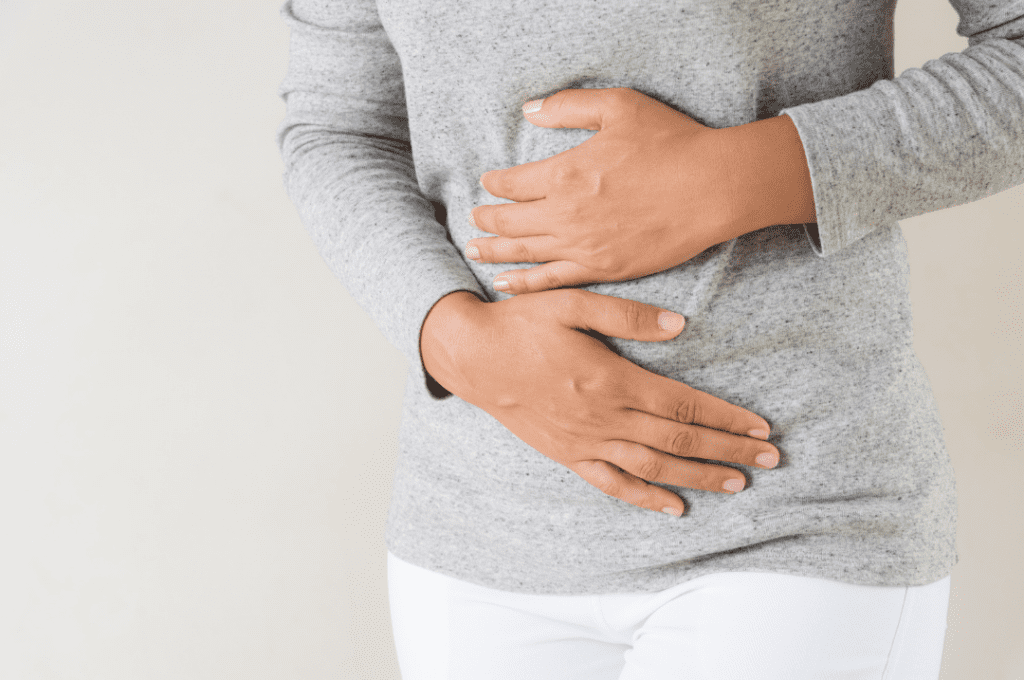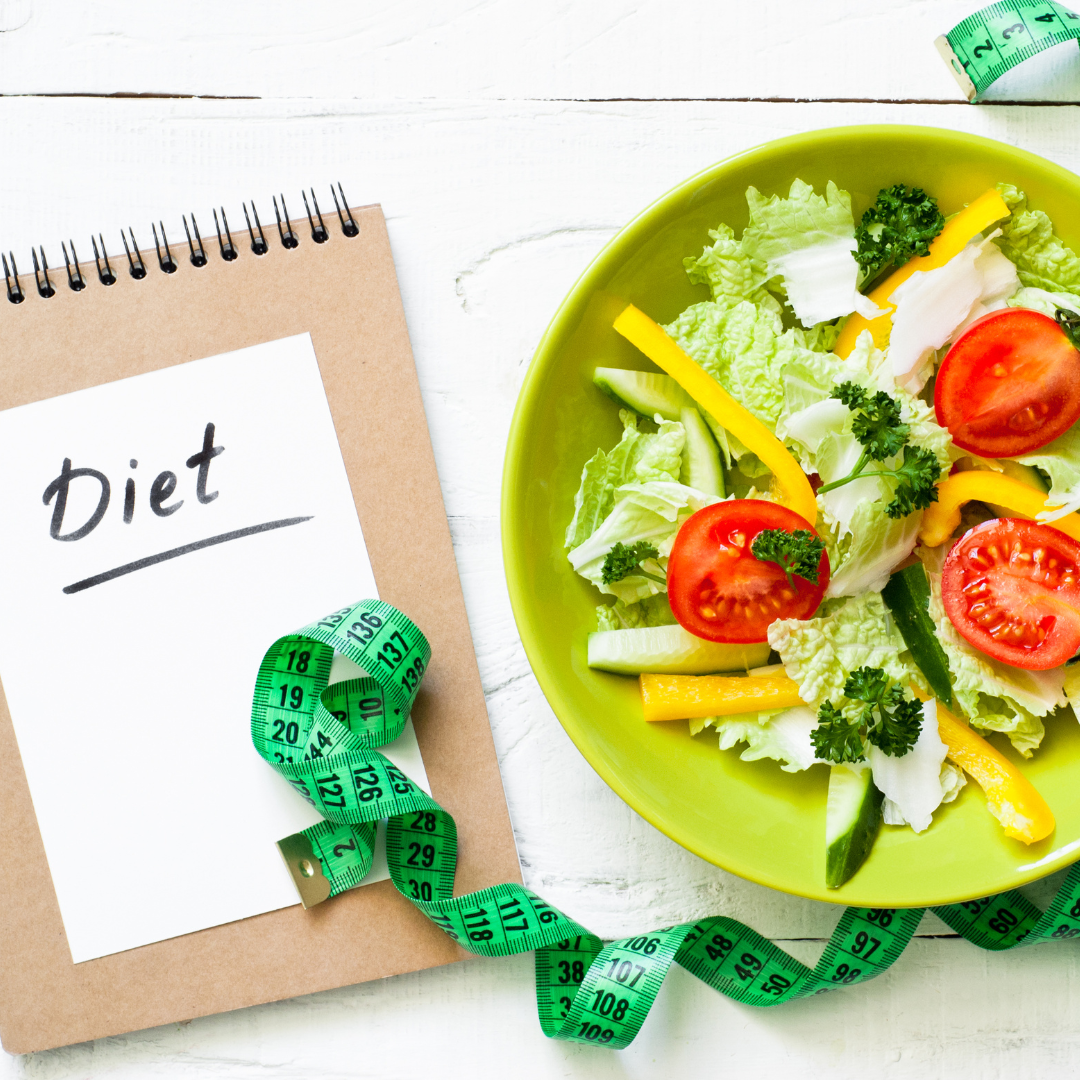Bloating and distention of the abdomen are two of the most commonly recorded gastrointestinal symptoms. They affect anywhere between 16-19% of the general population. Significant bloating tends to be more prevalent in women than men, and can be caused by a wide variety of underlying issues. For many, the severity of the condition often worsens throughout the day, and can be heavily impacted by diet and lifestyle.
Bloating is categorized as a feeling of uncomfortable, and sometimes painful, fullness or pressure in the abdomen as a result of excessive gas, air, or stool. While bloating is common, it is often a sign that something more is happening beneath the surface that may need to be addressed. Learning what is normal and when you should see a doctor will help you navigate the uncomfortable symptoms, and know how and when to treat the condition.

6 Common Causes of Bloating
Constipation
One of the leading causes of uncomfortable or painful bloating is constipation. Constipation is categorized as passing less than 3 stools per week, experiencing painful bowel movements, or passing small, dry stools. When one is constipated, the unpassed stool is left to sit and ferment inside the colon, leading to the growth of more gas-producing bacteria. As a result, your abdomen will feel full and distended, and you may even experience a painful pressure as the stool struggles to move through the digestive tract.
When stool becomes trapped in the colon, it also makes it harder for your body to pass gas. As a result of the blockage in the digestive tract, the excess gas being formed in the colon becomes trapped as well, worsening the pressure, fullness, or discomfort. In more moderate to severe cases, the bloating may lead to additional symptoms including nausea, back pain, and abdominal pain.
Irritable Bowel Syndrome
Irritable Bowel Syndrome, or IBS, is a chronic condition that affects the function of the digestive tract. Individuals living with IBS often have a more sensitive gut than those who don’t, leading to frequent and disruptive symptoms that affect their quality of life. Bloating is one of the most common side effects of IBS, with almost 90% of patients reporting suffering from some form of it.
IBS often causes decreased function of the abdominal wall that can lead to excessive gas that leads to bloating.
Food Intolerances
Many food intolerances can lead to bloating, but some of the primary culprits are fermentable oligo-, di-, mono-saccharides and polyols – otherwise known as FODMAP foods. These foods can cause inflammation, and tend to increase the water levels in your gut. This leads to bloating, discomfort, and increased levels of fermenting bacteria. High FODMAP foods include:
- Garlic
- Lentils
- Almonds
- Cashews
- Avocados
- Onions
- Beans
Studies continue to show that individuals suffering from conditions such as IBS that cause bloating often report that their symptoms are alleviated, and sometimes eliminated completely, by following a low FODMAP diet.

Diet: Sugar, Fat, and Salt
These three things are a major cause of bloating in the West. Salt has been linked to a 27% increase in bloating when compared to people on a low sodium diet. Fat intake has also been linked to an increased feeling of bloat in patients, especially those suffering from indigestion. Furthermore, high levels of sugar, especially those found in artificial sweeteners, also lead to bloating.
Malabsorption
Malabsorption occurs when the small intestine has a hard time digesting certain nutrients in our food. There are many causes for malabsorption, from lactose intolerance to celiac disease to pancreatitis. Bloating occurs because the unabsorbed nutrients are allowed to over-ferment in the intestines, leading to increased gas production by the gut microbiome.
Small Intestinal Bacterial Overgrowth (SIBO)
Small intestinal bacterial overgrowth, or SIBO, is a condition where the small intestine has an overabundance of bacteria, leading to increased gas production and bloating. There are many theories as to what causes it. The small intestine secretes acids that help to keep the bacterial population down. If this, coupled with the small intestines ability to move food along malfunctions, bacteria can begin to replicate where they aren’t supposed to.
10 Ways to Get Rid of Bloating
Understanding the root cause of your discomfort plays a key role in learning how to get rid of bloating. Since bloating can be caused by a variety of issues and conditions, there are several strategies that can be used to help alleviate your pain or discomfort.
Keep a Food Diary
Understanding when and why your bloating is happening is the first step to feeling better. Keeping a food diary is the best way to know what foods or environmental factors are contributing to your bloating. I recommend three columns: one for the food you’ve had today, a second for your emotional state, and a third detailing your symptoms.

Avoid Processed Food
Processed foods are full of fat, salt, and refined or artificial sugars, all common contributors to bloating. Keeping processed foods to a minimum won’t just help your bloating, though; it’ll help you to lose belly fat and become healthier overall.
Drink Plenty of Water
Water can help to reduce bloating by flushing out excess salt in our bodies.
Cut Out the Dairy
While not everyone has lactose intolerance, it’s common enough, and goes undiagnosed enough, to warrant a check. The best way to make sure that your bloating isn’t coming from dairy is to cut it out for a while! Take a milk, cheese and ice cream break for 4 weeks and see if your bloating symptoms improve.
Intermittent Fasting
Fasting can be a great way to both control your weight and protect against bloating. Allow for 10-12 hours a day with no food in your stomach (water is just fine). The easiest way to do this is to stop all food at around 6pm. Assuming you go to bed by 10pm, once you’ve had your full 8-hours, you can wake up and have a regular meal. And you can shift these hours however you want! The ultimate goal is to limit your calorie consumption to between 10-14 hours per day.
Add Some Spice to Your Life
There are a number of herbs and spices that may help reduce the feeling of bloating. These include:
- Cumin
- Carom
- Fennel seeds
- Turmeric
- Peppermint
- Asafoetida
- Ginger
- Mint
Add these to your foods (asafoetida, ginger, turmeric, fennel, mint, cumin and carom) or have some in tea (peppermint, ginger, mint).

Eat Mindfully
Our lives are busy, so we tend to gulp down our food in a hurry, swallowing large chunks of food and air in the process. But remember that digestion begins in the mouth! Taking the time to eat slowly and chew our food thoroughly helps to break down our food before it gets to our intestines, thereby allowing it to move through faster and produce less gas. It also keep us from swallowing too much air, which can exacerbate bloating.
Walking/Stretching
To reduce your symptoms and alleviate bloating, taking a brisk walk around the neighborhood, park, or even on a treadmill should help decrease your discomfort. Walking and stretching helps to stimulate your organs. This makes it easier for your body to move trapped gas and stool through the digestive tract more effectively. Although getting up and moving around seems like the last thing you want to do when you feel bloated, staying sedentary will only exacerbate your symptoms and prolong the uncomfortable sensation.
Abdominal Massage
If you find yourself unable to manage a walk due to discomfort or other circumstances, a quick abdominal massage is the next best thing. Once again, the goal here is to stimulate the digestive organs to help move things along more quickly. One of the most effective ways to massage the abdomen is to place your hand on your right hip, and gently massage the abdomen as you make your way upward toward the ribs. Continue the massage as you work your way straight across your abdomen to the left side of the rib cage, before continuing down to the left hip. Continue massaging in this square pattern as many times as you feel necessary until you begin to feel relief.
Probiotic Foods
Your digestive system relies on trillions of microscopic bacteria to keep your gut functioning at an optimal level. When your gut is low on beneficial bacteria due to illness, diet, or lifestyle, it may throw your system out of whack, leading to abdominal discomfort. To remedy this situation, try taking a probiotic supplement, or eating foods high in probiotics such as:
- Yogurt with live and active cultures
- Sauerkraut
- Kimchi
- Kefir
- Kombucha
- Miso
- Natto
Fermented foods make your gut happy and healthy! They give your body the good bacteria it needs to keep your digestive system moving.

Don’t Ignore Your Symptoms:
See Your Doctor
If you’re suffering from chronic moderate-to-severe bloating, consider speaking with your physician. They can run some tests to determine if your symptoms are being caused by gut issues like IBS or SIBO. Gastroenterologists and dietitians are uniquely equipped to help you get to the bottom of your bloating and help you to reduce or eliminate it!
Need Help With Your Gut Health?
If you have been experiencing persistent bloating and need additional support, I’m here to help! If you want to maximize your gut health, you can purchase Doctor Méndez Introduction to Gut Health here or book an appointment with me today to get help!
[/fusion_text][/fusion_builder_column][/fusion_builder_row][/fusion_builder_container]








